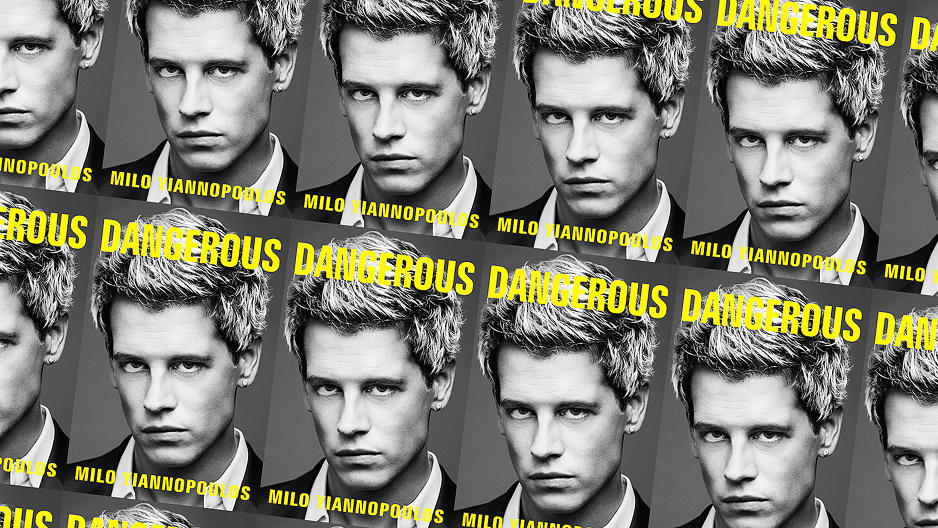When Your Business Doesn’t Match Your Values, What Then?
This story reflects the views of this author, but not necessarily the editorial position of Fast Company.
I look for help in unlikely places when the world feels upside down. Just (February 03, 2017) morning, I bought crystals, of all things (emerald for healing energy, rose quartz for transitions), and in recent weeks I’ve turned to authors like Jeff Chang and Rebecca Solnit and Claudia Rankine and Brit Bennett—talented writers whose urgent, necessary messages have helped me sleep through the night since November 8. That’s how I’ve responded as a lover of books, anyway.
As a producer of them, I see things a little differently.
I’m now a literary scout for a small firm in New York, but previously I was an editor for two imprints at Simon & Schuster, the book publisher whose CEO Carolyn Reidy wrote (February 03, 2017) to the company’s authors defending its decision to publish a forthcoming book called Dangerous, through the conservative-leaning Threshold Editions, by the right-wing firebrand Milo Yiannopoulos. In her letter, Reidy claimed that “neither Threshold Editions nor any other of our imprints will publish books that we think will incite hatred, discrimination, or bullying.” She also wrote that she expects Yiannopoulos’s book will contribute something of substance—rather than hate speech—to “social discourse,” a function that book publishers ideally see themselves performing.
Working in the book industry, I know well that it’s a business like any other. But unlike most industries, it purports to serve a moral purpose bigger than its bottom line. The unfortunate reality, though, is that it’s fallen far short of those ideals long before signing an author like Yiannopoulos.
Reidy’s letter sounds some familiar notes. Several years ago, in a contract dispute with Amazon, far and away publishers’ leading distributor, many in the book world argued that the e-commerce giant’s profit motive would strangulate the free exchange of ideas that publishers exist to promote. Publishing wasn’t just another business, they claimed, it played a civic function, too.
This argument, admittedly, has always been a little thin—and that’s now apparent even to many of the industry’s insiders. Recently, over 160 children’s book authors and artists (many of them published by Simon & Schuster) wrote an open letter to the publisher claiming that Yiannopoulos’s views are antithetical to their sense of publishing’s social mission. “Irrespective of the content of this book,” they wrote, “by extending a mainstream publication contract, Threshold has chosen to legitimize this reprehensible belief system, [Yiannopolous’s] behaviors, and white supremacy itself.”
That’s if you take publishing’s claims to preserving a lively, diverse “social discourse” at face value. I don’t, for two reasons.
The first concerns book publishing’s own composition. What even well-meaning critics like the 160+ signees overlook is how their industry is already plagued by racism, sexism, and—yes—white supremacy. I could cite personal accounts of identity-based tokenization I’ve experienced in my six-year career in book publishing, or those of the 49 publishing colleagues of mine who did so at length alongside me in a Brooklyn Magazine article last year. I could also point to the We Need Diverse Books campaign, which grew out of a shameful lack of diverse authors and subject matter represented at one of the industry’s leading trade conferences a few years ago.
But I don’t need to, because the statistics speak for themselves.
According to a Publishers Weekly survey last year, 88% of the industry’s employees are white. 88%, according to a separate survey, are straight. 78% are women, but Publishers Weekly found they earn an average of $35,000 less than the sector’s men. Only 8% are disabled. These figures have barely budged year after year, mirroring the near-standstill of diversity efforts in the much higher-profile tech sector over a similar period.
The second reason to doubt book publishers’ commitment to the values Reidy alludes to has to do with their business realities—the market exigencies that far less high-minded industries also face. For book publishers—especially publicly traded ones like the CBS-owned Simon & Schuster—staying in the black depends on a handful of breakout titles, often by authors with already sizable audiences. It isn’t likely that Threshhold signed Yiannopoulos because it expects Dangerous to become one of those record-busting titles, but it’s quite likely that the imprint inked a deal with him because his fan base assures the book a predictable ROI. Every editor swings for a grand slam when they run a P&L for an author’s advance, but they’re happy to hit a solid double.
Playing the game for either level of success doesn’t always leave room for the values that publishers claim not just to hold dear but to actively advance. Their businesses, like most businesses, simply aren’t set up to allow them to. Simon & Schuster, as a company, may not condone hate speech, but it continues to vie with other publishers to award book contracts to people who do. It’s rightly been observed that the publisher also publishes Rush Limbaugh, Michelle Malkin, and now-President Donald J. Trump.
So while the book industry’s workers, including its top brass, may personally reject everything Yiannopolous stands for, book publishing itself manifestly doesn’t. At the same time, it’s naïve to home in solely on his book deal as an indicator of the sector’s prejudices. Indeed, the pearl-clutching indignation among Simon & Schuster’s critics suggests much the same self-righteousness (not to say hypocrisy) that underlies statements like Reidy’s. You can’t make uncompromising declamations about your supposed values when they aren’t reflected in your business—especially not when you hold those values up as your industry’s raison d’etre.
What’s saddest about this is that book publishers still can and do perform values-driven work, even though that isn’t the kind of work that drives the whole system. In my four years at Simon & Schuster, I met some of the most inspiring, clever, and engaged people I’m ever likely to call colleagues. Books—and the industry that makes them—have always been a haven for me. But that doesn’t negate the reality that publishers’ business, so far anyway, don’t always let them to live by the values Reidy confidently professes.
I worry that that’s never going to change. And to me, that prospect is far more dangerous than Dangerous, once it’s finally published, ever could be.
Megan Reid is a senior scout for Sanford J. Greenburger Associates’ literary scouting division. A former editor at Simon & Schuster’s Touchstone and Emily Bestler Books imprints, she has contributed to Refinery 29, Boston Magazine, and Self. She lives in Brooklyn, New York.
Fast Company , Read Full Story
(37)



